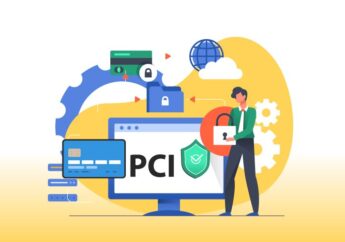What Startups Need To Know About PCI Compliance?
by Mashum Mollah Ecommerce Published on: 21 August 2019 Last Updated on: 23 January 2025

PCI DSS (Payment Credit Industry Data Security Standard) is a set of security procedures that govern credit card processing. PCI stipulates how businesses of different sizes should collect, store, and use customer credit card information.
These standards were put in place to guide merchants on how to keep customer information safe from threats. Indeed, hackers find a credit card (and other financial data) very lucrative. And because a hacking attempt it registered every 39 seconds, e-commerce companies cannot afford to fall behind in protecting sensitive customer data.
The primary challenge that startups and e-commerce businesses face is dedicating enough resources to protecting financial data. As a startup, you may be focused on marketing, brand recognition, and achieving growth. However, failing to comply with critical data security guidelines may result in paralyzed operations.
The good news is that PCI DSS lays out a detailed framework that you can follow to keep customer payment information secure from threats. This piece will tell you everything you need to know about PCU compliance as a startup company. In addition to these levels, it would also be a good idea to take a look at the key PCI requirements 6.4.3 and 11.6.1 to learn further about tamper detection and protection.
The Levels of PCI Compliance
PCI compliance is categorized by the number of payment transactions that a company processes every year. The more processing you complete, the more stringent measures you’ll have to comply with. PCI compliance is split into four main levels:
Level I
Level I is the highest compliance level for PCI. It covers merchants who process over 6 million digital transactions every year, and an independent security assessor should validate that all requirements are currently being met.
This assessment should be followed by regular scans carried out on in-house data. The purpose of continuous scanning is to prove compliance and to remain up to date with any new regulations.
Level II
Quarterly internal scans are necessary for level II PCI compliance. This level applies to any business that processes 1-6 million digital transactions. And while an external assessor isn’t a requirement, every company should fill out a self-questionnaire to prove continuous compliance.
Level III
Any business that processes $20,000 to $1 million in digital transactions is required to comply with level III PCI compliance. This level also requires quarterly data scans, but having an external assessor is not mandatory.
Level IV
Level IV is the lowest level of compliance. It covers businesses that process $20,000 or less in digital transactions every year. If your startup fails within this level, you only need to ensure that network firewalls, software security, and other general protection measures are in place.
What E-Commerce Businesses Need To Know About PCI Compliance

Maintaining a compliant operational framework is critical for startups and e-commerce businesses. Compliance gives you an edge over the competition, reduces operational costs, and keeps you protected from many types of hacking. This is why you should strive to build your operations around a compliant environment. But you can only take this step if you know what PCI actually involves.
Here’s what startups should be aware of when it comes to PCI Compliance.
1. Working with a reputable assessor will make compliance easier
Security assessors (called QSAs) are trained professionals who can help you conduct a security assessment regarding your payment processing. You should work closely with a QSA so they can help you establish your compliance requirements and how you can adjust your daily operations towards this end.
QSAs can also help you identify appropriate and scalable solutions to fit your current operations.
2. Have proper firewalls in place
PCI DSS compliance stipulates that you set up firewalls for keeping your data secure. Firewalls provide multiple layers of protection to prevent hacking attempts and the compromising of the credit card information. Your firewalls should also actively monitor events and keep detailed logs.
3. Design your networks
PCI compliance doesn’t stop with designing firewalls and networks. You will also need to monitor these networks so as to remain one step ahead of emergent threats. When it comes to credit card processing, having actively monitored networks will be key to proper compliance and data security.
4. Implement access control
Another critical element that you should be aware of is access control. Make sure that only authorized personnel has access to credit card data at all times. Furthermore, such information should be encrypted to make it harder for hackers to gain access.
Setting resources aside for PCI Compliance
As a startup, you may be wondering how PCI DSS will affect your bottom line. The cost of remaining compliant is certainly lower than the cost of a data breach. As you determine the overall cost of PCI compliance, consider the following factors:
The number of transactions you process per year
This will determine the PCI level under which your business falls. It will also affect the compliance practices that you’ll need to have in place during daily operations.
The nature of your business
The size, budget, number of employees, and nature of operations will also influence your PCI compliance framework.
Your current physical environment
PCI compliance will also be affected by your current hardware, software applications, remote workers, products on sale, and other physical environment determinants.
With this general information handy, your startup and e-commerce business will be able to maintain PCI compliance and data security while you develop trust with your customer base.
Read More:



































































































